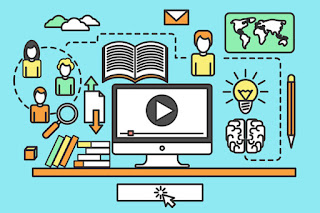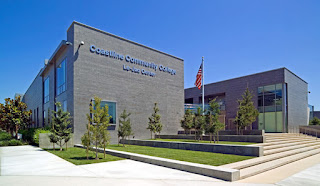Online Degree Programs May Change the Future of Higher Education
18.29 |
Loading...
Online Degree Programs May Change the Future of Higher Education

For many years, youngsters have gone to these schools to learn new things and discover course throughout everyday life. In any case, now, with the assistance of innovation, the way information goes from instructors to their understudies is evolving.
In February 2016, the Babson Survey Research Group revealed that 28 percent of all U.S. undergrads took no less than one class over the web. The exploration gathering, some portion of Babson College in Massachusetts, considers all levels of training the nation over.
However, having understudies take a couple of online classes amid their school years isn't the main change innovation is driving.
Numerous U.S. schools and colleges now offer full degree programs on the web. This opens up a wide range of potential outcomes for understudies the world over.
One such understudy, Leanne from Cherry Hill, New Jersey, is utilizing an online degree program to address her issues. The 30-year-old requested that VOA not share her last name as she presently can't seem to finish her investigations.
In 2012, Leanne earned a four year college education in nursing through a conventional report program at Thomas Jefferson University in Philadelphia. She at that point began filling in as a medical caretaker in the Washington, DC region.
Online Degree Programs May Change the Future of Higher Education
Following a couple of years, Leanne chose she needed to procure a graduate degree to enable further her to vocation in pharmaceutical. Be that as it may, she would not like to move to another city to proceed with her training, as can frequently be the situation for understudies. Her activity and her significant other were in Washington, and she just needed to contemplate low maintenance. In this way, Leanne chose to search for an online program.
"There were a great deal of good, engaging things about doing it online - it enabled me to work all day and fit the schoolwork into my timetable, which frequently made it significantly more fiscally achievable. What's more, … the medical attendant professional program, they have broadly gone … towards being on the web, to the point where it's in reality extremely hard to discover a program that was face to face."
In 2014, Leanne started taking nursing classes through the online graduate degree program at DC's George Washington University. The program gives therapeutic preparing recordings through her home PC. She likewise is associated with exchange gatherings, takes tests, and submits ventures on the web.
Leanne says a lot of her examinations are self-coordinated. Be that as it may, understudies likewise should physically visit the college no less than four times amid their three-year program for face to face testing.
Leanne says her program claims to many individuals with all day employments. What's more, George Washington University isn't the only one in its endeavors to spread online training.
The interchanges organization AT&T gave the Georgia Institute of Technology $4 million to make an online degree program in 2014. This prompted an online graduate degree program in software engineering.
Furthermore, in the previous couple of years, the program has turned into a genuine progress story, says Joshua Goodman, a partner teacher of open approach at Harvard University. Goodman examined the impacts of the online program. Harvard's Kennedy School of Government distributed his discoveries last September.

Online Degree Programs May Change the Future of Higher Education
Goodman says online degree programs have confronted two noteworthy obstructions. To start with, it has frequently been lesser-known, bring down quality, or revenue driven colleges that have offered online projects. Second, surely understood, top notch schools charged a similar cost for on the web and in-person programs. This regularly prompted understudies picking the conventional projects.
In any case, the Georgia Tech program may have tackled these issues, Goodman says. Numerous specialists consider the college to have extraordinary compared to other software engineering graduate degree programs in the nation. Additionally, Georgia Tech started offering the online program at short of what one 6th of the cost of the customary program.
The school's face to face program just has space for around 300 understudies. The online program had around 1,700 new understudies toward the beginning of the school year.
However Goodman contends it isn't only the quality or the value that make Georgia Tech's online program so fruitful. The normal period of understudies endeavoring to get into the conventional program is around 24. The normal age of the online understudies is 34. These are individuals amidst their professions, Goodman notes. They are not allowed to drop everything and put in a couple of years examining as opposed to working.
Goodman says before the Georgia Tech program, a significant number of these individuals had no other great options for advancing their instruction.
"The people who connected for this program … did not have other instructive alternatives that they would do on the off chance that they didn't get into this program. … What we found is that in the event that they got into this program, they went, they did this degree. What's more, in the event that they didn't get in, none of them went to another college. So it appears like this program is making instructive open doors for mid-vocation individuals that would not have generally existed."
Online degree programs appear to not just assist understudies with non-customary requirements. Now and again, the interest of the projects has helped the schools themselves. This is particularly critical considering numerous schools and colleges have battled fiscally lately.
Online Degree Programs May Change the Future of Higher Education
Simmons College is a little, private school in Boston, Massachusetts. For quite a long while, Simmons acknowledged more graduate understudies than students. In 2012, the school made an arrangement to begin offering two of its most prevalent graduate degree programs on the web. The two are in nursing and social work.
A year ago, the school gathered about $45 million in understudy installments for those projects. This year the projects are relied upon to achieve in $55.9 million. This is about $3 million more than all the in-person graduate projects Simmons offers, consolidated.
Suzanne Murphy is the leader of the online projects at Simmons. She says the reason those projects bid to such a large number of understudies is the quality.
"You measure achievement in understudy results," Murphy said. "'How are the understudies getting along?' 'How are they advancing through the projects?' Things like that. Furthermore, the projects that we put online are similar projects that we have on the ground."
Leanne, Goodman and Murphy all concur there are numerous different approaches to enhance online degree programs as a rule. One week from now, we will take a gander at a portion of the issues such projects still face.
0 comments:
Posting Komentar